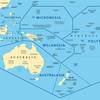The European Commission is putting forward measures to prohibit by 2003 the use of environmentally harmful anti-fouling paints on European ships and by 2008, on all ships irrespective of their flag. Organotin compounds contained in anti-fouling paints persist in the water, killing sealife, harming the environment and possibly entering the food chain.
Ships travel faster through the water and consume less fuel when their hulls are clean and smooth-free from fouling organisms, such as barnacles, algae and molluscs, therefore they are coated with anti-fouling systems. During the '60s the chemical industry developed efficacious and cost-effective anti-fouling paints using metallic compounds, in particular the organotin compound tributyltin (TBT). Since the '70's most seagoing vessels have TBT paints on their hulls
The Commission proposes today to prohibit organotin compounds used as active biocides on ships flying the flag of a Member State by 1 January 2003 and to ensure a complete prohibition of the presence of organotin compounds on all ships, irrespective of their flag, by 1 January 2008. Scientific studies have shown that organotin compounds, in particular TBT, used as anti-fouling systems on ships, pose a substantial risk of adverse impacts on ecologically and economically important marine organisms.
This prohibition will also encourage Member States to ratify as soon as possible the new International Convention on the Control of Harmful Anti-fouling Systems (AFS-Convention) and contribute to an early implementation at international level. The October 2001 AFS-Convention will prohibit the use of harmful organotins in anti-fouling paints used on ships and will establish a mechanism to prevent the potential future use of other harmful substances in anti-fouling systems. The Convention is open for signature since 1 February 2002. It will however only enter into force 12 months after 25 States representing 25 % of the world's merchant shipping tonnage have ratified it.
Already in 1989, the European Union decided to ban on its territory the marketing of these compounds used as biocides to prevent fouling on hulls of small ships, mostly pleasure craft. However the Union refrained to extend this ban to all ships until an agreement for a world-wide prohibition of organotins was reached.
Sponsored Content
MSC Sets a New Standard for Time Off in 2025, Plus Earn a $38,340 Bonus as an Able Seaman!

Navigate Compliance with Confidence: Discover Carbon Diligence from ABS Wavesight

Featured videos

Xenos Marine Takes Aim at the Gulf Salvage, Decommissioning Markets

AI to the Rescue: Zelim’s ZOE to be Installed on Cruise Ship
Subscribe for
Maritime Reporter E-News
Maritime Reporter E-News is the maritime industry's largest circulation and most authoritative ENews Service, delivered to your Email five times per week











